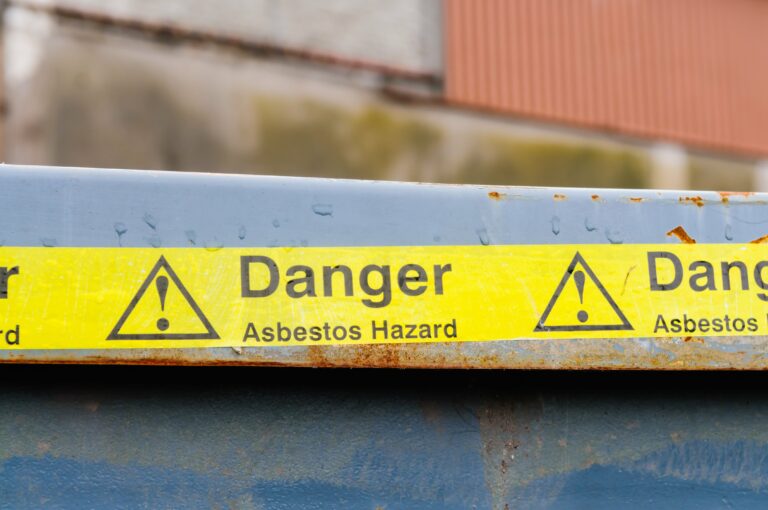Blog
Managing work-related stress | How employers can meet their duty of care
Written by Hannah Kennedy on 12 February 2021

A stressed-out workforce doesn’t do anybody any good. In fact, work-related stress has significant consequences both for employees and employers.
Workplace stress can affect employees’ health, morale, work rate, attendance and working relationships. In turn, this will likely impact your organisation’s productivity, staff turnover and reputation.
Facts and figures
According to the Health and Safety Executive’s (HSE) annual summary statistics, work-related stress, depression or anxiety is the number one cause of work-related ill health.
- It affected 602,000 workers in 2018/19, 246,000 of which were new cases.
- It accounted for almost half (44%) of all ill health cases.
- It was responsible for 12.8 million working days lost, or 54% of the total days lost due to ill health.
Stress isn’t a new problem; however, as the association between work and wellbeing becomes increasingly obvious, greater emphasis is being placed on workers’ mental health. While there is now a more open dialogue around mental health, employers are often not clear about what their duties are, and often underestimate the impact that poor mental health can have.
Do you need support?
Speak to us for an honest, no obligation chat on:
0345 226 8393 Lines are open 9am – 5pm
What is work-related stress?
The HSE defines workplace stress as “the adverse reaction people have to excessive pressures or other types of demand placed on them”.
In practice, stress affects people differently – what stresses one person may not affect someone else. Indeed, many workers benefit from a certain amount of pressure in their work; it can help to keep them motivated and give them a sense of achievement. However, when too much pressure is placed upon someone, they will become overwhelmed. Factors such as skills and experience, age and disability all impact a person’s ability to cope. A worker’s skill and knowledge should therefore be matched to the demands placed on them.
The psychological impact of stress can lead to medical conditions such as anxiety and depression. Stress, anxiety and depression also increase the risk of physical health problems, including heart disease, back pain, gastrointestinal illnesses or skin conditions.
What to watch out for
- A drop in performance Uncharacteristic mistakes
- More absences or sick days
- A rise in complaints and grievances
- Arguments/conflict with colleagues
- Reacting differently to people or certain situations
- Changes in behaviour (becoming more withdrawn, sensitive, irritable or aggressive)
- A lack of training
- Too much pressure/a heavy workload
- Unrealistic and last-minute deadlines
- Being overworked (remember, hours and shifts must comply with the Working Time Regulations 1988)
- A lack of support
- Difficult working relationships
- Job insecurity
- Reorganisation or relocation
- Having mental health issues ignored or not taken seriously
What the law says
There is no one law specifically covering stress. Instead, protection comes from a range of sources.
Common law dictates that employers are responsible for the general safety of their employees while at work. Statutory law such as the Health and Safety at Work etc Act 1974 states that employers must take reasonable steps to:
- Make sure workplaces are safe and healthy; and
- Control identified risks.
The Management of Health and Safety at Work Regulations 1999 require employers to carry out a “suitable and sufficient” assessment of the risks to the health and safety of their employees. As an employer, you are required to put proper controls in place to avoid these risks, wherever possible.
Where it is not possible to avoid risk, steps must be taken to reduce them so far as is “reasonably practicable”.
Employers' duty of care
Employers must recognise signs of stress in staff and act to reduce or remove the causes. Stress should be seen as a hazard to everyday work life just like any other aspect of health and safety.
As with physical injury, there is a duty of care to safeguard staff from the causes and effects of stress at work. As an employer, you must:
- Protect your employees from the likely causes of workplace stress;
- Carry out regular risk assessments (which must be acted on and updated as required);
- Recognise when an employee is suffering from work-related stress;
- Remove or reduce the causes of stress; and
- Support employees with recovery.
Work-related stress cannot go ignored; you must take all necessary steps to remove or reduce it.
Practical guidance from the regulator
To help employers identify and manage the causes of stress at work, the HSE has developed what is known as the Management Standards. The HSE explains that the Management Standards “cover six areas of work design that, if not properly managed, are associated with poor health, lower productivity and increased accident and sickness absence rates”.
All managers should have a working understanding of the Management Standards. These are:
- Demands. Workers may not be able to cope with their job’s demands, becoming overwhelmed with the workload, work pattern or work environment.
- Control. Employees may get stressed if they feel a lack of control about the way they work, leading them to underperform and feel isolated.
- Support. A lack of support from colleagues or management can also contribute to stress.
Relationships. If relationships in the workplace are causing stress, this can lead to increased employee grievances, allegations of bullying and/or harassment and bad team dynamics. - Role. People get stressed when they don’t understand their role and what’s expected of them, or if they have conflicting job demands.
Change. Some employees find change and how they may be affected very unsettling.
The HSE’s Indicator Tool is a great starting point when it comes to assessing and monitoring stress in the workplace. It provides a simple questionnaire for employees to fill out, which then indicates to the employer where progress is being made and highlights areas that require attention.
Although the Management Standards were introduced in 2004, the HSE has admitted that it hasn’t made as much progress as it would like when it comes to effecting real change and driving down the number of work-related stress cases. In “refreshing” its standards, the HSE has developed an action plan to make sure they are applied more effectively.
6 top tips for reducing work-related stress
Design employees’ roles to allow for work-life balance.
- Keep the workload suitable to the employee’s ability.
- Allow employees to have control over their tasks as much as possible.
- Keep job demands reasonable by providing manageable deadlines.
- Have reasonable work shifts and ensure sufficient rest before shifts.
Employees feel stress when unclear about their roles and responsibilities.
- Create a clear leadership structure so that everyone knows who to report to.
- Set job expectations so that workers have a clear understanding of the scope of their role.
When employees are able to communicate problems, it reduces much of their stress.
- Discuss problems with your employees one-to-one.
- Arrange small group meetings for employees to voice concerns and interact with each other.
- Communicate openly about any potential changes in your organisation.
High employee engagement can improve productivity and happiness levels.
- Recognise and reward good performance.
- Set targets and reward employees for achieving those targets.
- Establish a zero-tolerance policy for harassment.
Exercise and a healthy lifestyle plays an important role in reducing stress.
- Consider offering employees discounted gym membership.
- Provide employees with wearable technology devices that measure steps, heart rate and activity. Have competitions, with prizes for the most active.
- Encourage employees to go for five to 10-minute walks during lunch breaks.
Reasons for conflict may include promotion opportunities, salary disputes, feeling underappreciated, and personal differences.
- If there is conflict between employees, address it quickly, possibly through the use of mediation.
- Give managers appropriate conflict resolution training and resources.
Need support with workplace stress?
If you’re looking to proactively manage stress and stress-related absenteeism, WorkNest’s experienced Employment Law and Health & Safety specialists can provide practical, tailored advice and support to ensure you meet your legal obligations and are acting in the best interests of your business.
We also offer a one-day stress awareness course for managers and employees, which can be delivered exclusively to you at your premises, plus a wide range of employee benefits solutions (including gym discounts, Employee Assistance Programme and alternative therapies to aid with stress relief). Call 0345 226 8393.








